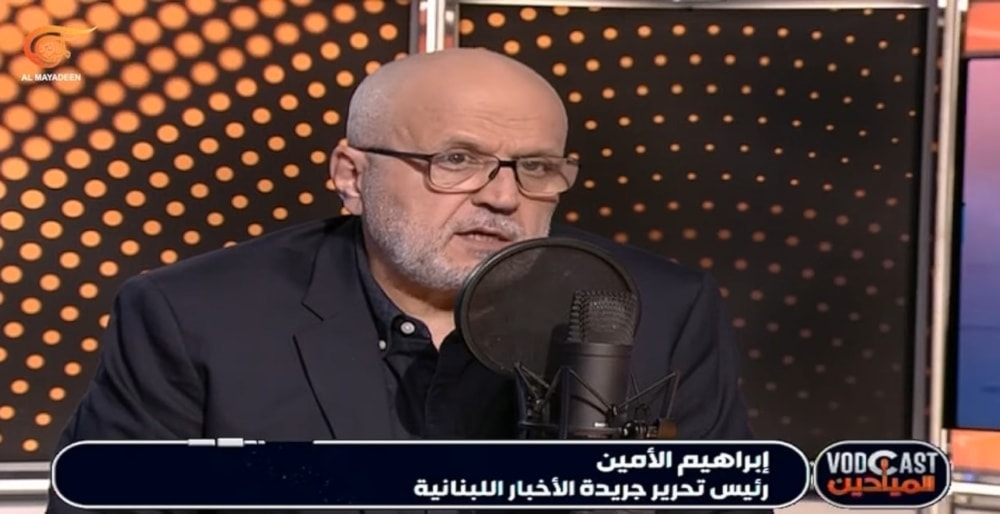Iranian response forms new political equation with 'Israel': Exclusive
In an exclusive interview with Al Mayadeen, Ibrahim Al-Amin dissects the Iranian response and its regional significance.
-

Ibrahim Al-Amin on Al Mayadeen's Vodcast. (Screengrab)
The editor-in-chief of Lebanese newspaper Al-Akhbar, Ibrahim Al-Amin, stated that the most important significance of the Iranian retaliatory attack against "Israel" was its affirmation that Iran was part of the confrontation against the occupation, and its formation of a new Israeli-Iranian political equation.
In an interview on Al Mayadeen's Vodcast, Al-Amin discussed the Israeli assassination of Iranian officials in Damascus, particularly martyr Mohammad Reza Zahedi, noting that "Israel" considered Zahedi as an actor in the Resistance movements' joint operation rooms, which made his assassination tantamount to the assassination of any Hamas or Hezbollah leader.
According to Al-Amin, the Iranian response affirmed that Iran is more than capable of confrontation and that it was a crucial part of the ongoing battle.
On the importance of October 7, he said that "Israel" considers the operation as a collaboration between Iran, Hezbollah, and Hamas, but in reality, it shattered the illusion that the occupation could not be attacked.
He praised the Palestinian people's "incredible resilience", ascertaining that "Israel" could never win despite its brutality. "Israeli unity on the war does not negate the contradictions regarding war administration in the upcoming phase," he said.
The US and "Israel" pressured Egyptian and Qatari mediators in negotiations to accept or approve Israeli proposals. Reportedly, American and Israeli movements, with the support of the UAE, and Qatar's adversaries, attempted to coerce Qatar into pressuring Hamas or its interests would be jeopardized, the chief editor added.
Hezbollah to stop attacking when war ends
Al-Amin further affirmed that Hezbollah will not halt its attacks on the northern front unless the war in Gaza ends, noting that the latter can only happen following a shift in the US stance or an internal upheaval within the occupation government.
He addressed the relationship that connected the leaders of the Islamic Resistance in Lebanon to Palestine, starting with martyr Imad Mughniyeh's close relations with Palestine and the Fatah movement. He said both martyrs Mughniyeh and Qassem Suleimani worked to develop the Resistance's capabilities and arms production.
On public Lebanese solidarity with Gaza, Al-Amin stated that the overwhelming majority of the population supports Palestine.
He lastly emphasized that "Gaza will impact everything around the world, and the Zionist trend existing today in the West would not have emerged with such intensity without the war on Gaza, not to mention the division present among Arab nations."

 3 Min Read
3 Min Read








